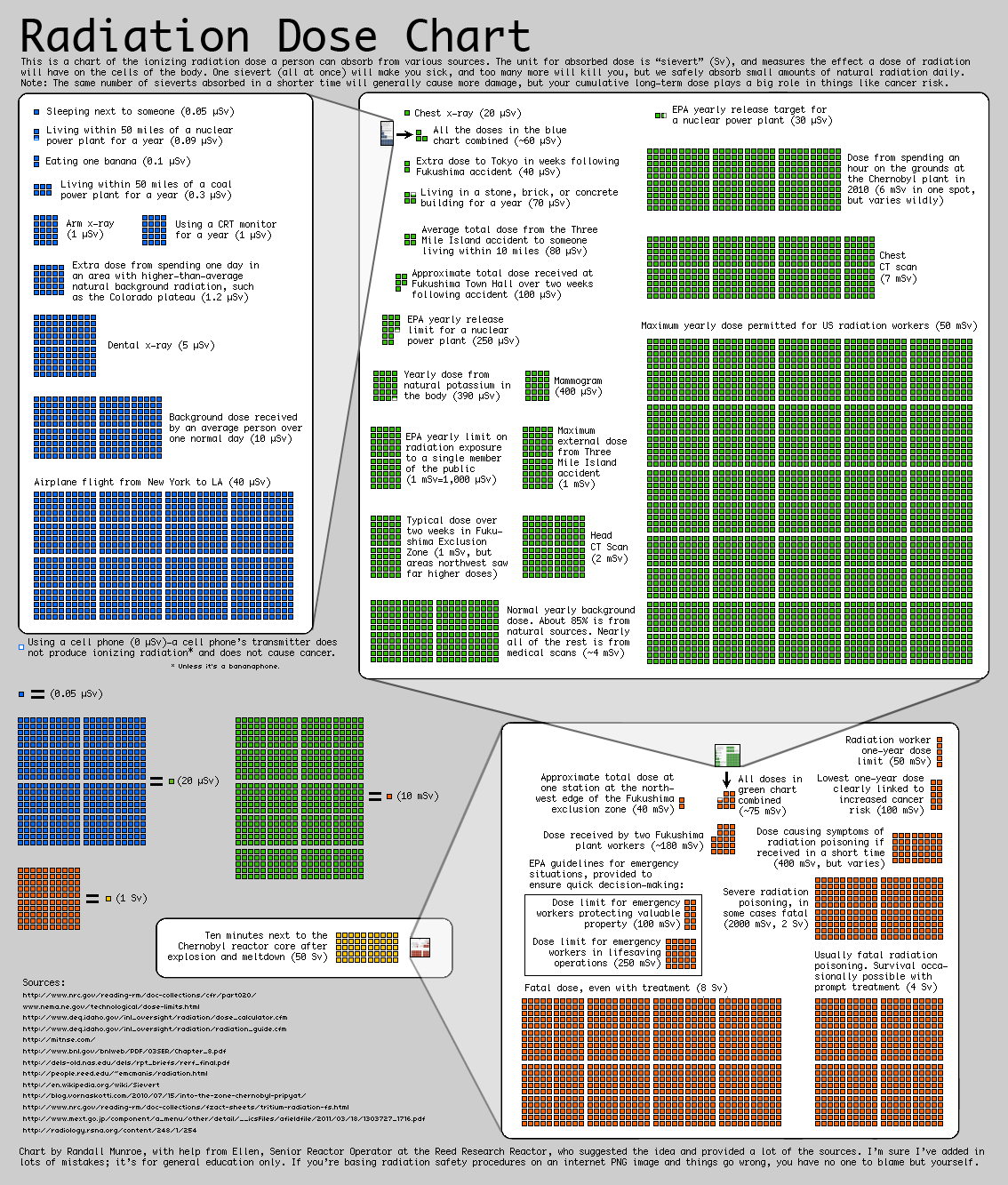I found this chart. Right click and view image to zoom in

I know XKCD is done by a well known scientist. So I believe the data.
I thought about it and I had heard that Coal kills more people each year than Nuclear power (from mining accident to pollution).
Now also note that ALL of the Blue graph is only 3 green dots. I mean that the amounts of radiation received is from both the Nuclear and Coal power plant are very very small compared to the amounts you get flying from LA to New York.
Just reading the chart. I know radiation is still bad but I must wonder how overblown people get over small radiation exposure. I mean sure you might get cancer from the Coal power plant but it is just as likely (if not more likely) you get cancer from that plane flight you took, but on both just background exposure (meaning natural radiation that everyone from the start of time was exposed to) more dangerous. I know about cumulative effects and such but still people need to chill about radiation.
We need power and it must come from someplace. Kansas is facing power shortages because (Out Of State) Hippies are saying we can not build power plants. Not Coal, Not Nuclear. We are building wind power fields like crazy, but they only work when wind is blowing. Really they are only useful to ease the burden on existing power stations not to generate "real" that we need.
And do not get me started on the dam Serra club in Nebraska. Trying to stop a much needed oil pipeline that would help create jobs and provide Oil from North American oil Fields, so we are not force to ask the middle east to keep drilling.
That was a good rant. ty
FLT

I know XKCD is done by a well known scientist. So I believe the data.
I thought about it and I had heard that Coal kills more people each year than Nuclear power (from mining accident to pollution).
Now also note that ALL of the Blue graph is only 3 green dots. I mean that the amounts of radiation received is from both the Nuclear and Coal power plant are very very small compared to the amounts you get flying from LA to New York.
Just reading the chart. I know radiation is still bad but I must wonder how overblown people get over small radiation exposure. I mean sure you might get cancer from the Coal power plant but it is just as likely (if not more likely) you get cancer from that plane flight you took, but on both just background exposure (meaning natural radiation that everyone from the start of time was exposed to) more dangerous. I know about cumulative effects and such but still people need to chill about radiation.
We need power and it must come from someplace. Kansas is facing power shortages because (Out Of State) Hippies are saying we can not build power plants. Not Coal, Not Nuclear. We are building wind power fields like crazy, but they only work when wind is blowing. Really they are only useful to ease the burden on existing power stations not to generate "real" that we need.
And do not get me started on the dam Serra club in Nebraska. Trying to stop a much needed oil pipeline that would help create jobs and provide Oil from North American oil Fields, so we are not force to ask the middle east to keep drilling.
That was a good rant. ty
FLT
